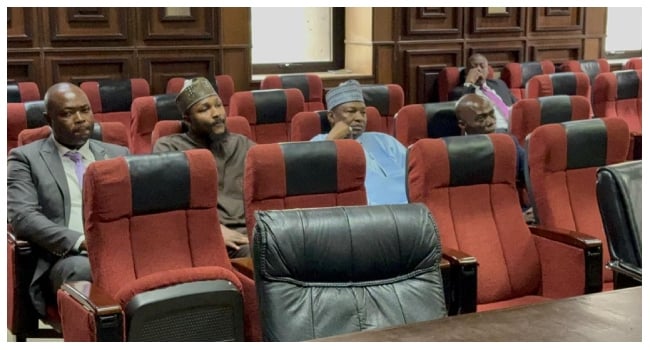By Chinwendu Obienyi
With only nine months remaining until the Central Bank of Nigeria’s (CBN) recapitalisation deadline, the country’s banking sector is under mounting pressure. Lenders must mobilise billions in fresh equity while contending with a challenging macroeconomic environment, all as they strive to stay profitable and play a pivotal role in driving national economic growth.
For an industry already contending with exchange rate volatility, inflation-driven cost pressures, and fierce fintech competition, the recapitalisation order is more than a regulatory milestone.
It is a defining moment and one that exposes the tension between profit and public purpose, between short-term shareholder returns and long-term economic transformation.
In April 2024, the CBN announced a new recapitalisation mandate requiring commercial banks to raise fresh equity: N500 billion for international banks, N200 billion for national banks, and N50 billion for regional players.
While most tier-1 institutions have already met or surpassed their targets—through rights issues, public offerings, and private placements—smaller banks continue to navigate mergers, acquisitions, and capital raises in phases. According to Olufemi Awoyemi, founder of Proshare Nigeria, over N13 trillion in new capital has been raised as of mid-2025.
But while the financial metrics look promising on the surface—stronger capital buffers, improved asset bases, and higher capital adequacy ratios—questions linger: Will this wave of recapitalisation catalyse real economic growth, or will it merely fortify the banks as profit-driven entities?
The fact is that most of these banks have drifted away from that core role of facilitating economic activities and now standing as a business on its own. Hence, anytime, there is recapitalisation, it is an opportunity to take a second look at banking as a core aspect of the national economy.
However, Daily Sun learnt that many banks since the recapitalisation directive, are choosing to prioritise profitability and shareholder returns in the short term. This is because they are caught between recapitalisation targets, digital disruption, regulatory evolution, and a national development agenda, many are choosing to prioritise profitability and shareholder returns in the short term.
Understandably so, Nigeria’s economic landscape remains volatile. Exchange rate uncertainty, inflationary pressures, and tight global financial markets all affect banks’ margins but stakeholders argue that long-term survival and relevance will depend on how well banks connect with the broader economy.
This was alluded to during the 4th edition of the newly launched; Tier-1 Banks: Getting Bigger, Braver and Dominant – The Class of 2025” by financial intelligence platform, Proshare in Lagos recently.
Experts at the launch noted that recapitalisation is an opportunity to take a hard look at the evolving role of banking in Nigeria’s economy and the ability of financial regulators to respond to innovation, complexity, and the scale of modern banking.
They also gave insights as to what banks must do to balance profit with national growth and how the CBN can help as well.
Closing the credit gap
President Bola Tinubu’s administration recently announced plans to roll out a new consumer credit programme in July 2025, targeting 400,000 young Nigerians, including National Youth Service Corps (NYSC) members. While the policy is ambitious, experts insist it will only succeed if banks are willing to innovate and embrace lending risk, especially in underserved sectors.
Founder and Chief Consultant, B. Adedipe Associates Limited, Biodun Adedipe, said recapitalisation must not be seen as merely a compliance exercise but rather should be used to evaluate the foundational role of banks in driving economic activity.
“Historically, the banking business was meant to be a derivative, facilitating commerce, enabling investment, and deepening the real economy. Over the years, that original purpose has faded. Banks today are often just profitable institutions pursuing their own interests”, Adedipe said.
In his view, recapitalisation offers a rare chance to reset the direction of banking in Nigeria. “By increasing capital, banks are expected to grow their capacity to attract deposits, which in turn enables credit creation. However, the real impact depends on where those loans go.
Capital is not directly lent out but it motivates confidence, drives deposit mobilisation, and gives banks room to take more risk. The bigger issue is this: will that risk translate into real-sector lending and GDP growth or just safe bets and Treasury placements?
The real sector and that is where I think the banks need to pay more attention to which is the responsibility here because the more they are connected to the economy, the more money they stand to make”, Adedipe said.
Indeed, many commercial banks in Nigeria today remain overexposed to government securities and underexposed to productive sectors like manufacturing, agriculture, and SMEs. Lending is risk-averse, and despite efforts by the CBN and the fiscal authorities, access to credit remains stubbornly low.
He argued that the recapitalisation exercise must lead to market expansion and not just stronger balance sheets.
Adedipe said, “The gap in the credit market is significant. What we need are mechanisms to de-risk sectors such as credit guarantees, better credit data, and smarter financial products. The credit market must evolve in a way that encourages lending to growth-driving sectors.”
Corroborating Adedipe, a former director at the Central Bank of Nigeria (CBN), Dr Omolara Akanji, suggests borrowing insights from behavioural economics to better serve the informal sector, which accounts for more than half of Nigeria’s economy but remains largely unbanked.
“If we study economic behaviours, understand the spending and repayment patterns of informal actors, and design tailored credit products, we can bring a huge segment into the formal economy,” Akanji said.
Regulatory frontier
As banks expand and digitise, supervisory complexity is rising and some experts are unsure whether the CBN’s existing framework is robust enough to keep up.
Dr. Akanji pointed out that digital innovation and complex HoldCo structures have blurred the lines between core banking income and non-core earnings.
“My concern is whether the regulator is moving at the same speed as the market. Many banks today declare massive profits sometimes over a N1 trillion but much of that is not from traditional lending or deposits. It is from investments, digital subsidiaries, trading, and other ventures under HoldCos”, Akanji said.
This evolution creates a transparency challenge for regulators. HoldCos combines diverse subsidiaries—insurance, asset management, fintech—and income can be pooled in ways that make it difficult to track the source of value.
She said, “Bank supervisors tend to focus on regulated banks, but now the real activity may be happening in unregulated or lightly regulated arms. Without dissecting those income streams, we risk allowing banks to circumvent core regulatory principles.”
Akanji believes that the CBN must train a new cadre of financial examiners with cross-sector expertise and develop bespoke frameworks to monitor digital and HoldCo structures effectively. “Otherwise, recapitalisation could lead to even greater opacity, not better risk management,” She warned.
Fintech pressure and inclusion paradox
The rise of fintech is another challenge banks cannot ignore. Platforms like Opay, Palmpay, and Moniepoint have made significant inroads in retail finance, particularly in underserved and informal markets.
According to the Nigeria Inter-Bank Settlement System (NIBSS), nearly 40 per cent of financial transactions in Nigeria are now processed by fintechs, a statistic that underlines how technology has redrawn the competitive landscape. Chief Business Officer, Optimus by Afrinvest, Dr Ayodeji Ebo, says traditional banks are struggling to keep pace with the fintechs.
Ebo said, “It is easier for an informal trader to get a micro-loan from Moniepoint than from a Tier-1 bank. This is because these fintechs are data-driven, low-cost, and customer-focused. They understand the behavioural side of financial services.”
He also warned that regulation must ensure fintechs and non-bank subsidiaries do not become loopholes for traditional banks to bypass risk-based lending rules. “There needs to be an understanding of how these subsidiaries play by the books so that they are not using those subsidiaries to circumvent regulations. There must be proper firewalls and oversight. If not, we may end up with a shadow banking problem that erodes trust and creates systemic risk”, he said.
As recapitalisation clock winds down, there are priorities that stand out for banks and regulators alike.
Banks must channel new capital into sectors that drive real growth, not just safe-haven investments while the CBN must update its regulatory tools and frameworks to monitor HoldCos, digital income streams, and complex product lines. Similarly, banks must embrace fintech not just as competitors, but as collaborators.
Hence, recapitalisation, if well-managed, can be the launch pad for a smarter, more inclusive financial system in Nigeria. But if banks merely get bigger without becoming more development-driven, the exercise risks becoming cosmetic.
As stakeholders have made clear, this is not just a numbers game. It is a call to rethink the role of banking in national growth and whether profit can co-exist with purpose in building a stronger Nigerian economy.


















Leave a comment